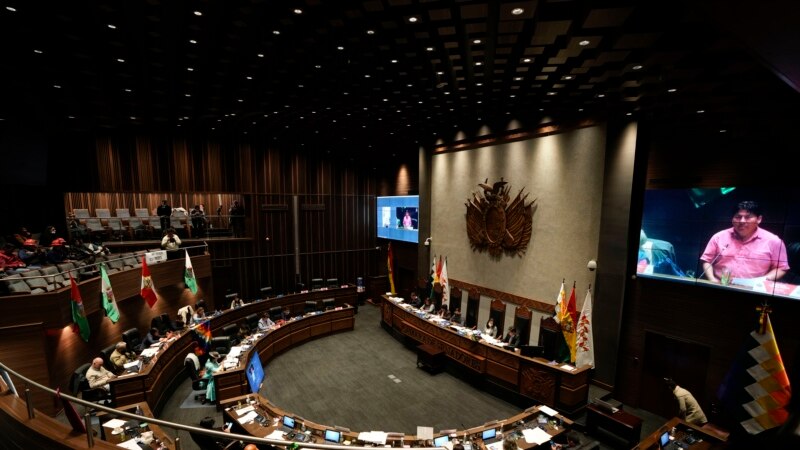
Bolivia’s Legislative Assembly approved early Friday morning a controversial “gold law” that will allow President Luis Arce to dip into metal reserves and buy gold from environmentally unfriendly miners in an effort to recover the Andean country’s economy. and face the shortage of dollars.
In accordance with the norm, the Central Bank may “carry out operations in international markets with gold reserves… in order to optimize the liquidity and performance of International Reserves”, whose drastic reduction, especially in foreign currency (dollars), They have been the financial strength during the so-called “economic miracle” that the South American country experienced until recently.
“We give the country confidence that with this law the transitory drop in liquidity will level out,” said Economy Minister Marcelo Montenegro during the debate in the Senate.
Against all odds, the two opposing factions of the ruling Movement for Socialism (MAS) gave the majority of the votes required for approval.
The law takes away from the legislature the power to approve the sale of gold from the reserves, which was one of the points of contention.
“It’s a blank check. They want to make believe that it is to strengthen the gold reserves, but they will end up liquidating them”, affirmed the deputy Carlos Alarcón, from Comunidad Ciudadana (CC), the main opposition group.
Opposition senator Cecilia Requena said that the law “will allow illegal gold to be laundered” and will encourage its extraction in Amazonian rivers where, according to her, miners use mercury without control, causing serious damage to the environment. Alluvial gold is produced by small cooperatives, some of them illegal, which are managed by the miners themselves.
Bolivia experienced one of the biggest booms in its history in the past decade thanks to the high prices of raw materials. Incomes increased fivefold, the country lowered its poverty levels and accumulated monetary reserves of up to 50% of its GDP, according to the authorities.
That saving allowed him to extend the time of fat cows but the dollar reserves reached their lowest level last February. The latest data from the Central Bank indicates that international reserves reached 3,538 million dollars as of February 8, of which 472 million were in foreign currency (dollars).
Gas exports that underpinned the golden decade fell to the point that in 2022 the country went from being an exporter of hydrocarbons to an importer of liquid fuels, according to data from the state National Institute of Statistics (INE).
Since 2021, gold has come to occupy the first place in Bolivian exports with a total value of almost 3,000 million dollars last year, but the State barely received 70 million dollars in royalties and taxes, according to official figures.
With the new law, miners will pay a little more to the state, but will have tax advantages if they sell their gold. The standard was approved with the support of that sector.
Connect with the Voice of America! Subscribe to our channel Youtube and activate notifications, or follow us on social networks: Facebook, Twitter and instagram.







![[Img #74683]](https://thelatestnews.world/wp-content/uploads/2024/12/The-main-mistakes-to-avoid-when-betting-on-electronic-sports-150x150.jpg)






